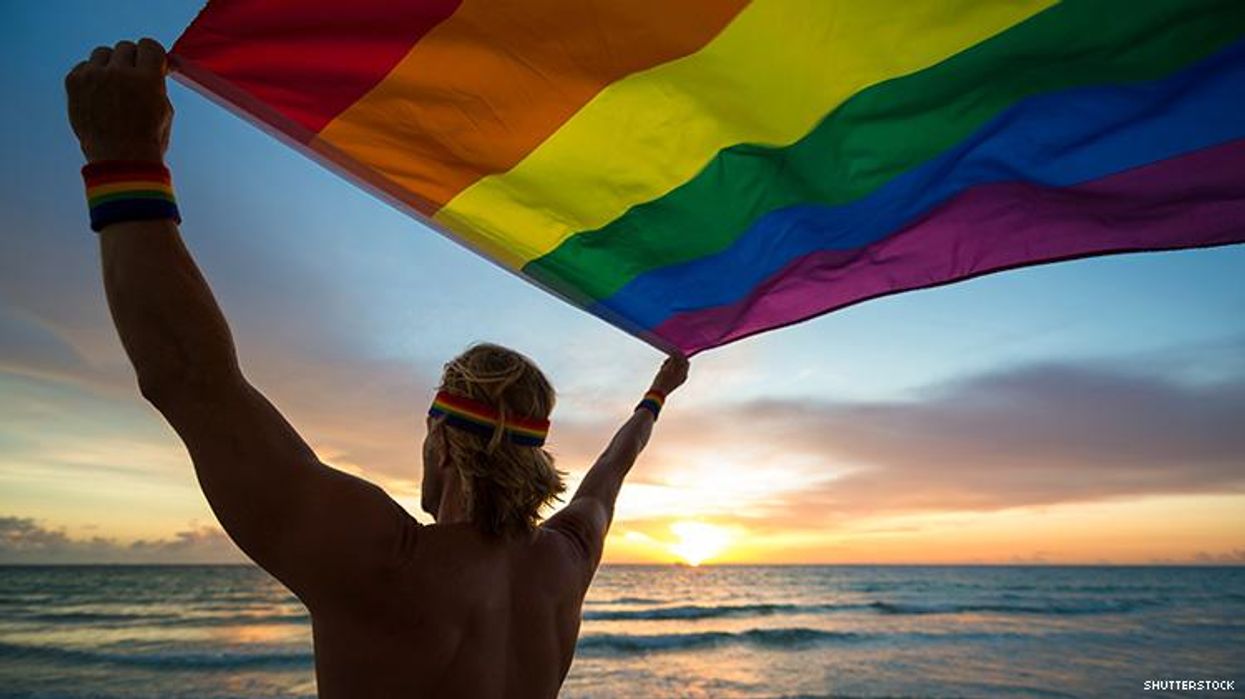Voices
Let's Talk About (Gay) Sex

Sex education usually means hetero sex, but there are new efforts to ensure queer people know about their bodies and desires.
December 20 2019 3:42 PM EST
By continuing to use our site, you agree to our Privacy Policy and Terms of Use.

Sex education usually means hetero sex, but there are new efforts to ensure queer people know about their bodies and desires.
Ensuring that queer people have access to information about their bodies, sexual health and well-being is a tireless yet necessary calling in our movement. The pursuit of comprehensive sex education that reflects our needs, whether in public schools or in communities at large, has long been a contentious issue all around the world. As the second decade of the 21st-century comes to a close, now is no exception.
Over the past few months, backlash to sex ed has appeared in the news throughout the world. In Ghana, opposition rages against "Our Right, Our Lives, Our Future," the national program backed by the United Nations. In Poland, the ruling Prawo i Sprawiedliwosc party has gone so far as to propose jail time for sex educators. Even in Tunisia, where bold steps have been taken to institute comprehensive sex education in an exceptional effort for the Middle East-North Africa region, change has not come without hard-fought battles and plenty of controversy.
The reason for the backlash is always given different names: from protecting modesty to religious arguments in favor of abstinence-only information being taught. However, the controversy surrounding comprehensive sex education often stems from the inclusion of information related to sexualities and gender identities that fall outside of the perceived cisgender and heterosexual norm in most societies and cultures. Acknowledging that queer people exist and have desires is seen as an inherent danger in comprehensive sex education. If anything, we are summoned by right-wing and conservative leaders as a necessary evil and accused of underwriting the entire enterprise, like the allegations made by law lecturer Moses Foh-Amoaning in the Ghanaian case.
The problem is even the most progressive curricula often offers very little to queer people. Those in control of making decisions about if and how we learn about our bodies often have largely done the bare minimum to move sex education beyond abstinence-only. While some curricula are now medically-accurate, they may not include details about the very existence of queer identities, let alone how we can have joyful, healthy sex lives.
But the picture isn't all bleak for those of us who want to understand LGBTQ health and bodily rights. Like sex ed leaders in Black and Latinx communities and for disabled people, queer people have been working to make sure no one in our community gets left behind when it comes to having life-saving information about our health and well-being. Our people have always had to be our own sex educators and our movements of empowerment are stronger than ever. Now, we're bringing our education efforts to some new and unexpected places.
The two of us are proud to be the authors and community collaborators of Grindr for Equality's Sexual Health Resource Center (SHRC), which is made available to the app's more than 4.5 million daily active users. The resource center was created because Grindr users told us that they wanted to better understand their sexual health -- about PrEP, what it means to be undetectable, and what to ask for to ensure they were getting the most complete STI check-up possible. Since its launch in 2016, we've expanded to include a wide range of topics like consent, HIV home test kits, how to tell a partner about a positive STI test, and pregnancy prevention options for trans people.
Making the Sexual Health Resource Center truly accessible to Grindr's wide-ranging global audience has been a process of massive community collaboration. Originally launched only in English, the SHRC is now available in over 70 written languages representing every region on Earth. From Maori in New Zealand, to Kyrgyz in Central Asia, Tswana in southern Africa, and to 12 languages representing India alone, queer people can get access to sex education basics written for and by queer people in their own backyards. In order to get our users the best information possible, we have partnered with sex educators and LGBTQ translators to ensure the ways we describe our bodies, desires, and sex lives reflect the local language spoken by each community.
To top it all off, we use Grindr's geolocation services to deliver region-specific resources directly to queer people around the world who need it the most. Our users are often living in areas where accurate and affirming information about queer people and sexual health may not be available or accessible in the language in which they would prefer to read. We can see the real impact of the SHRC's reach; to date, over 16.1 million people have visited the Sexual Health Resource Center from 155 countries.
Our work is only part of a larger movement needed to ensure every queer person has the information to live their best, satisfying sexual life. Sex education for our community needs to become core to the existing comprehensive sex education curricula. Until then we'll continue a long tradition of queer people taking care of our own communities, sharing advice, resources and information that quite literally could mean the difference between joy and pain, life and death.
Jack Harrison-Quintana is the executive director of Grindr for Equality and Emmett Patterson is Grindr for Equality's Global Health Projects Manager.
Charlie Kirk DID say stoning gay people was the 'perfect law' — and these other heinous quotes